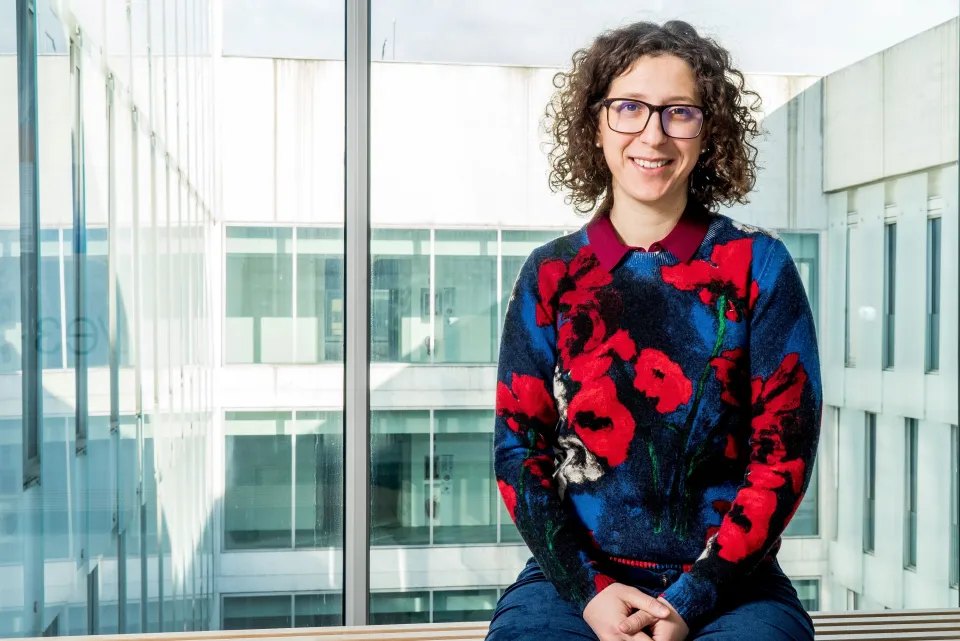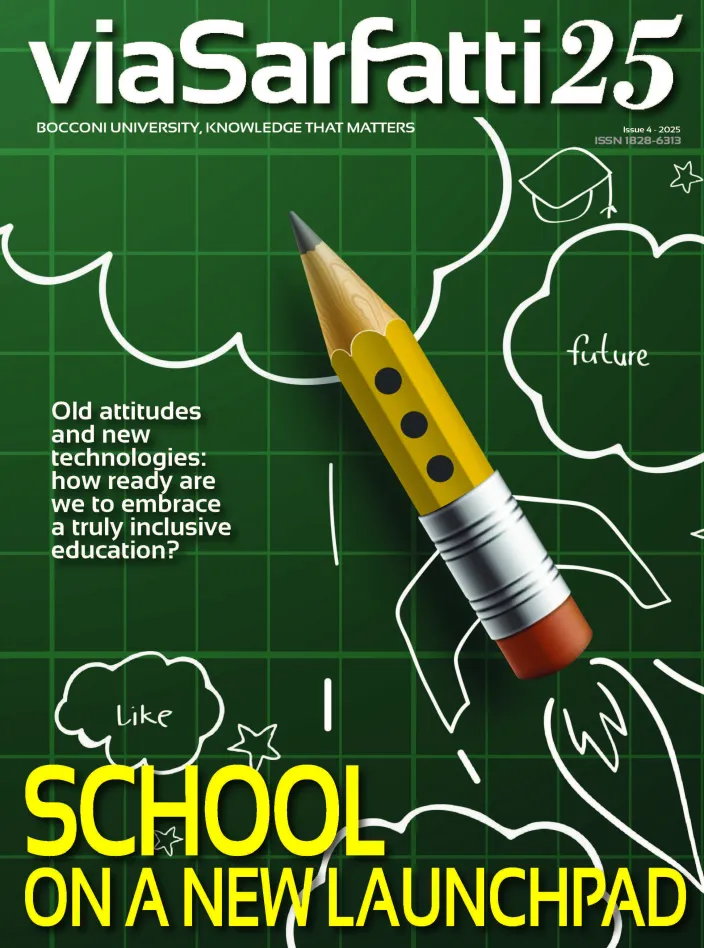
Does Teacher Personality Limit the Educational Future of Disadvantaged Students?
Teachers, on average, rate students from a disadvantaged socioeconomic background as less likely to succeed academically, even when they have the same abilities, skills and motivation as their more affluent peers. This isn't necessarily surprising, given that — all things being equal — greater availability of economic and cultural resources can translate into better academic outcomes. What is surprising, however, is that teachers' expectations on student performance vary systematically. This is what emerges from the paper "Teacher personality and the perceived socioeconomic gap in student outcomes" by Pamela Giustinelli (Bocconi) together with Giorgio Brunello, Clementina Crocè and Lorenzo Rocco (University of Padua).
The research, based on a pilot survey conducted in 2023 among 235 middle school teachers in the Veneto region, shows that teachers who are more extroverted and open to experience tend to be more pessimistic about the chances of students from low-income backgrounds to succeed in school. Conversely, teachers who are more conscientious and agreeable appear to have a stronger belief in potential of these students, but only in technical and professional careers.
"We have begun to fill a gap in economic literature on education to consider the influence of teacher personality on the process," explains Pamela Giustinelli, co-author of the study and Assistant Professor at the Bocconi Department of Economics. "Our findings not only suggest that teachers’ mindsets — critical in the orientation process — are not neutral with respect to a student’s social background, but that the orientation also reflects subjective traits of the teachers themselves."
The study is based on a vignette experiment, which consisted of showing hypothetical but realistic profiles of third-year middle schoolers, systematically varying their gender, personality, preferences, academic performance, immigration background and, above all, their family’s socioeconomic status. Each teacher had to estimate a student’s likelihood of successfully completing one the four kinds of high school programs available in Italy (scientific high school, classical high school, technical high school and vocational high school). At the same time, the personality traits of the teaching faculty were measured according to the Big Five model: extroversion, openness to experience, conscientiousness, agreeableness and neuroticism.
The results show that, on average, teachers give a 20.7% lower probability of successfully completing an academic program for students from disadvantaged backgrounds, compared to their peers from middle-class to upper-middle-class households. For technical-vocational programs, the gap is smaller, but significant (-6.5%).
However, it is by analyzing the interactions between teacher personality and socioeconomic disadvantage that the most interesting results emerge. When a teacher has a more extroverted and experience-oriented profile, the gap in expectations toward disadvantaged students increases to 46.8% for licei, and 8.1% for technical/vocational programs. Conversely, more conscientious and friendly teachers tend to evaluate the chances of disadvantaged students in technical-vocational programs more positively, exceeding the average estimate by 17.2%.
Why does this happen? The authors hypothesize that more open teachers, attracted by cultural and abstract stimuli, may perceive disadvantaged students as less prepared to face the theory-heavy challenges of scientific and classical high schools, due to less exposure to extracurricular stimuli. Similarly, extroverted teachers, who value social relationships, may believe that students without strong family networks struggle to integrate into elite school environments.
"Future research will need to test these hypotheses on a larger scale. In any case, the results of this initial study raise the possibility of a concrete risk: that students with similar characteristics end up on different educational paths simply because they of the biases of teachers having different personalities," Giustinelli emphasizes. "This could have implications for the equity of the school system and for social mobility prospects."
The research study cannot say whether teachers' expectations are correct or whether they contribute to achieving what they anticipate, as in a self-fulfilling prophecy. But it shows that these evaluations systematically depend on the teacher's personality. This finding — all other variables being equal — suggests that they cannot simply be considered objective assessments.
For this reason, the authors propose adopting possible countermeasures. One is limiting the weight of subjective opinions in the orientation process, perhaps through standardized tools or the use of artificial intelligence, or balancing teachers' basic personalities in school councils. Another idea is to assess the personality traits of future teachers during their university studies or upon entering the profession, to ensure greater awareness of their role in shaping the destinies of students.


